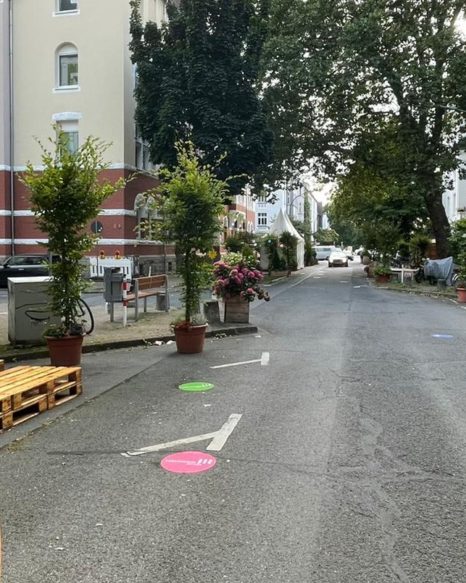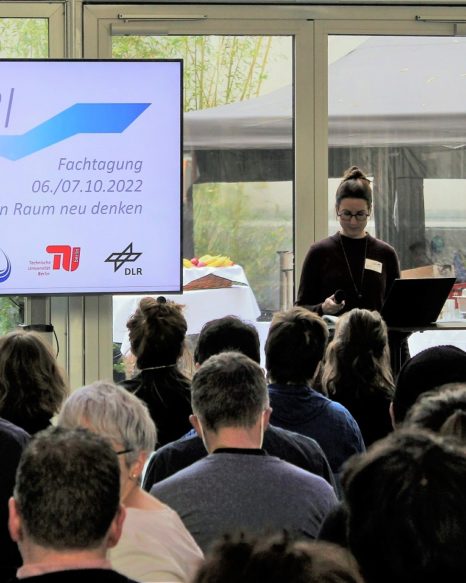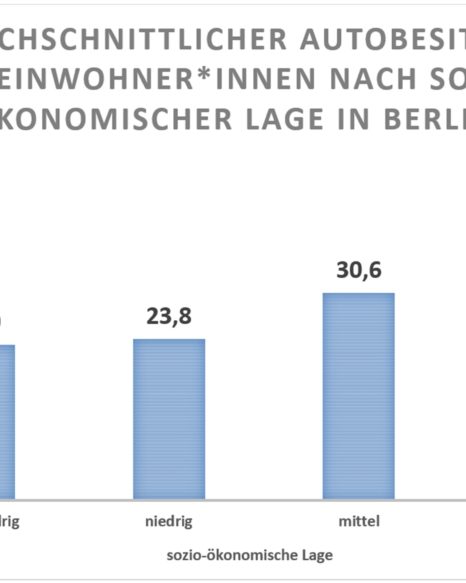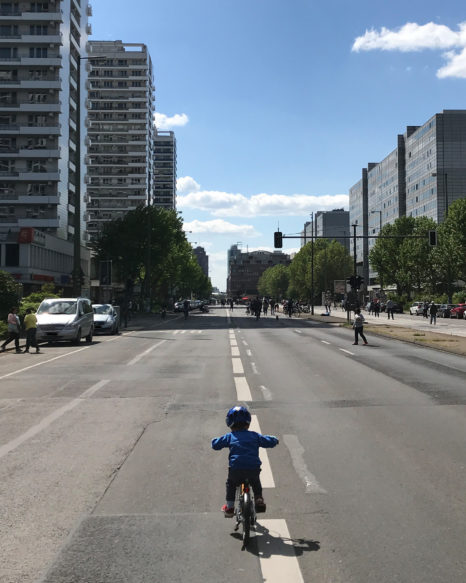Workshop methods & the psychology of climate justice - an internal training course

At the end of January, Katharina Götting, psychologist and doctoral candidate with EXPERI, organised an internal training for all EXPERI team members. It dealt with methods and tools that can be used in teaching and workshops, especially in online formats. Some EXPERI team members have been teaching digitally at universities in Berlin since the summer semester 2020 or are offering workshops at scientific conferences. The question of how such formats can be moderated online in an interactive and exciting way comes up again and again. Especially in online teaching, it can be observed that some participants "disappear" behind a switched-off camera and a muted microphone. Here, for example, methods in which answers are written down can create a more inclusive learning space.
Katharina Götting had previously taken part in a four-day Wandelwerk multiplier training, which dealt with both the application of interactive workshop methods and the topic of environmental psychology in the context of climate justice. The aim of this association is to put environmental psychology expertise into practice through workshops and consultations.
In the following, I present a selection of the methods discussed. Two methods for starting seminars or workshops are the "creative headstand" and the "ABC method". For the creative headstand, one first collects problematic characteristics of an issue by asking for the worst possible characteristic - e.g. what are the characteristics of an extremely badly designed seminar or an extremely unfair transport system? After collecting a few points, the perspective is flipped: The participants are now asked to come up with an idea for a solution for each of the problematic aspects - e.g. how can poor time management in the seminar be prevented or how can the street space be distributed more fairly? In reflecting on the method, we found that it is well suited for low-threshold participation and for shifting the focus from problems to the discussion of positive changes. In the ABC method, all the letters of the alphabet are first prepared on an online whiteboard, e.g. integrated in Zoom or on Mural, and space is left for comments on each letter. The participants are then asked to collect associations with a certain topic, e.g. climate justice, each of which has the appropriate first letter. All associations are allowed. Afterwards, the moderator can briefly summarise the aspects for which associations were named. When reflecting on the method, we discussed that this method can also enable a low-threshold introduction and that it is particularly pleasant in long video conferences to include silent intervals. However, it was also pointed out that certain knowledge of the topic is a prerequisite, otherwise frustration can arise if too many letters remain blank. In addition, the creation of unrealisable expectations should be prevented by the moderator stating that probably not every aspect mentioned can be discussed.
“From quiz to model” is a method of asking whether a particular statement is true or false before each introduction of a new element of content, thus generating curiosity about the following content. In the best case, it is posed controversially so that it stimulates reflection and discussion. Participants can either be encouraged to speak or the moderator can invite them to write in the chat whether they think the statement is true or false. This method simplifies access to present contents by moving from the discussion of practical (case) examples to more abstract models or theories. Katharina Götting used this method to introduce us to the different factors of the model for explaining environmentally friendly behaviour, which are described in Psychologie im Umweltschutz. Handbuch zur Förderung nachhaltigen Handelns (Hamann, Baumann & Löschinger, 2016) in more detail. The model was developed for use in practice and is based on the theory of planned behaviour (Ajzen, 1991) and the norm-activation model (Schwartz & Howard, 1981). When reflecting on the method, we noted that attention can be held with this method even during relatively long parts of the lecture. However, it was also noted that the formulation and choice of true-false statements is not easy: it should ultimately be possible to declare the statement clearly true or false, but at the same time it should open up a space for discussion and not be too difficult or too easy to solve.
In another method, we used a timeline to match historical events to their year using educational material on German colonial history developed by ESD Saxony. This method can also be carried out on a prepared online whiteboard. While this method can create access to a certain historical topic, we discussed the extent to which the task can be frustrating if one has no prior knowledge of the topic and cannot match the events correctly.
Digital scientific conferences also have poster sessions. For these, we used a tool that makes it easy to create visually appealing posters called canva. The tool can also be used to create presentations for online teaching or similar contexts. As an example, we created posters on the electrification of transport. It is promising to be able to design beautiful posters in a short time - but it requires practice to be able to use this tool meaningfully.
In her further training for the EXPERI team, Katharina Götting introduced us to the methodological findings and described and substantiated them with a special focus on the psychology of climate justice in the context of the transport transition. A climate justice system creates justice between the Global North and the Global South, rich and poor, old and young, and present and future generations. However, we are far from attaining this goal. Taking the context of the transport transition as an example, the high emissions of the transport sector are a major issue: they contribute significantly to the climate crisis and have devastating climate consequences, especially in the Global South (globally, the transport sector accounts for about one-fifth of all emissions ). Moreover, working conditions in the extraction of raw materials used by the car industry are often catastrophic (Beckert, 2019). People with low incomes are particularly affected by the environmental impacts of the transport sector, yet they have less access to mobility and cause fewer emissions in the transport sector (VCD, 2020). Climate injustice thus exists on a local and global level. The pursuit of climate justice can be a motivator on an individual level by bringing us to acknowledge our special responsibility as the main cause of the climate crisis and adjusting our behaviour accordingly. Environmental psychology uses scientifically based models to investigate how such attitudes and behaviours are promoted or inhibited.
Katharina Götting both gave us thematically exciting insights into the topic of environmental psychology and climate justice and shared many methodological approaches and ideas to make workshops interactive and stimulating. We left her workshop feeling inspired and look forward to using it in future events!











